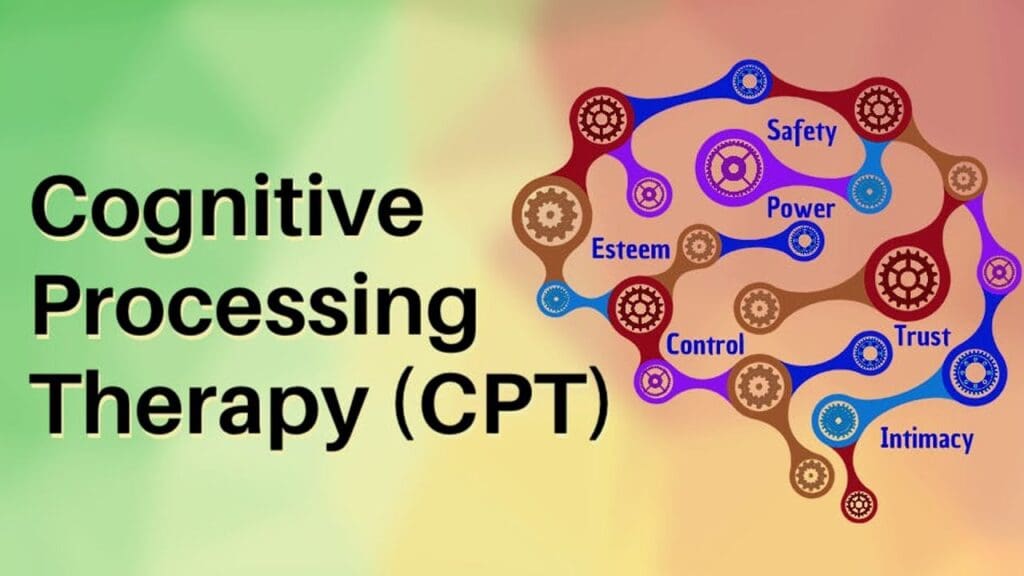
Cognitive Processing Therapy (CPT)
Cognitive processing therapy (CPT) is a cognitive-behavioural treatment for posttraumatic stress disorder (PTSD) and related problems.
The goals of CPT are to improve PTSD symptoms and any associated symptoms you may have (like depression, anxiety, guilt, or shame). It also aims to improve your day-to-day living.
At Brookside Psychologists, our licensed therapists provide compassionate and effective treatment. Finding a therapist can be a confusing process. Please don’t hesitate to contact us – let us help you navigate to find the help you need. Contact us today.

What Does CPT Involve?
CPT typically involves 6 to 24 individual (one-on-one) therapy sessions. The average number of sessions for CPT is 12. Each session lasts about 50-60 minutes. In the sessions, you will learn about the symptoms of PTSD and the reasons why some people develop PTSD.
You and your therapist will also identify and explore how your trauma or traumas have changed your thoughts and beliefs, and how some of these ways of thinking may keep you “stuck” in your symptoms. CPT does not involve repeatedly reviewing the details of your trauma(s). However, you will be asked to examine your experiences in order to understand how they have affected your thoughts, feelings, and behaviors.
After each session, you will be given practice assignments to complete outside of the sessions. These assignments are designed to improve your PTSD symptoms more rapidly outside the treatment sessions.
At each session, your therapist will help you figure out how your trauma has affected your thoughts and emotions, and help you make changes to feel better and function better. In order to do this, your therapist will review your practice assignments and share what he or she notices about your trauma- related thoughts, feelings, and behaviors. Your therapist will ask questions to examine what you have been thinking about your trauma(s) and their effects on your life, and will help you to challenge thoughts that might be inaccurate.
Your therapist will also teach you skills to change the way you think about events and about yourself and others. Another part of your therapist’s job is to notice and point out when you are avoiding working on the trauma, even when you may not notice that you are doing it.
Avoidance is a key PTSD symptom that keeps us stuck in nonrecovery.

